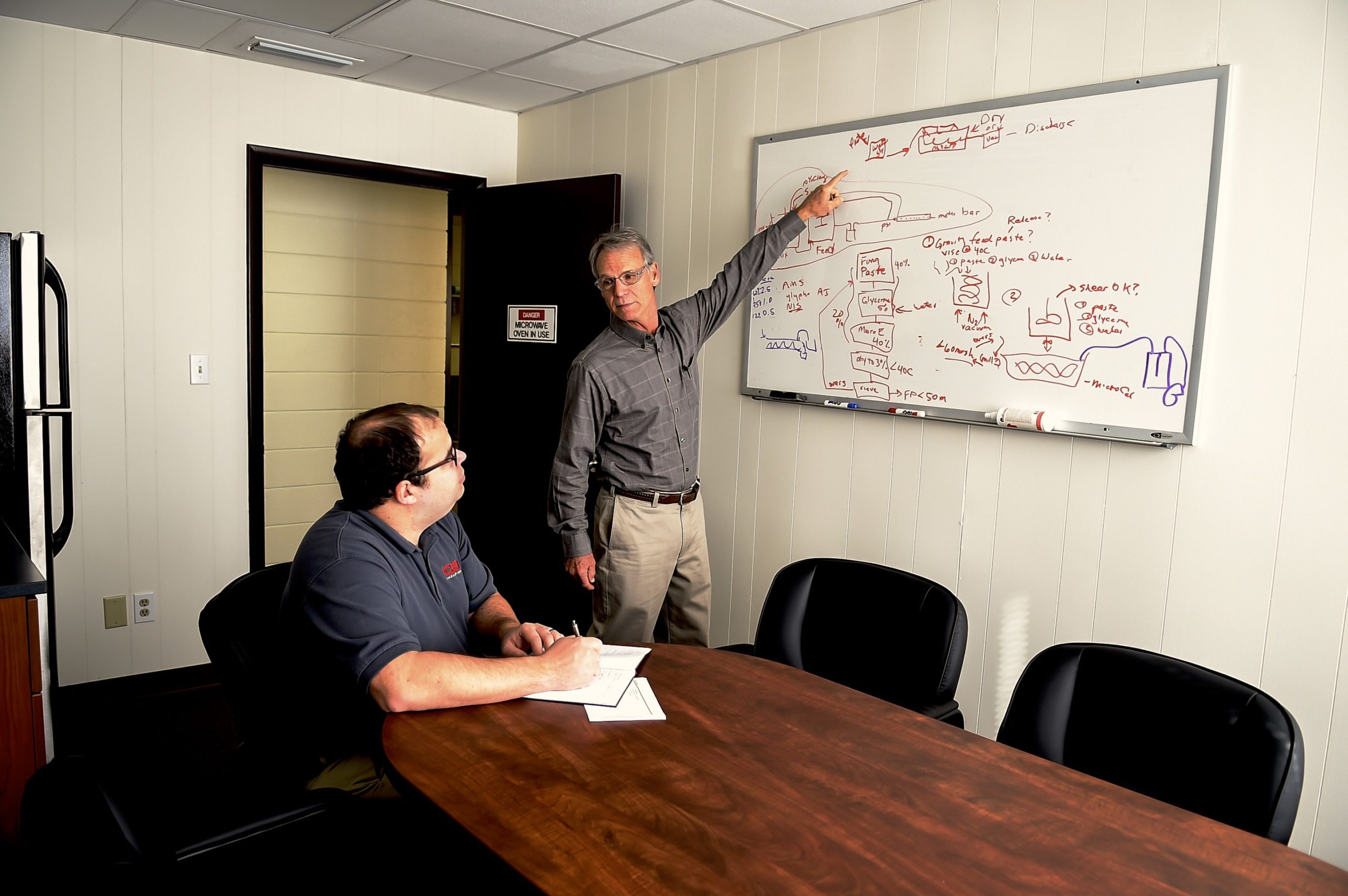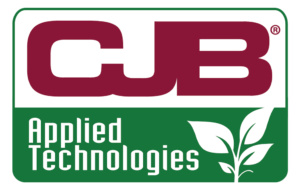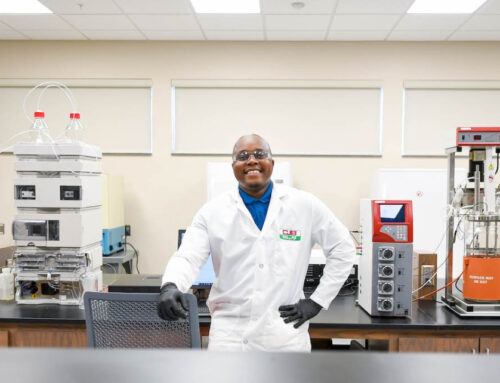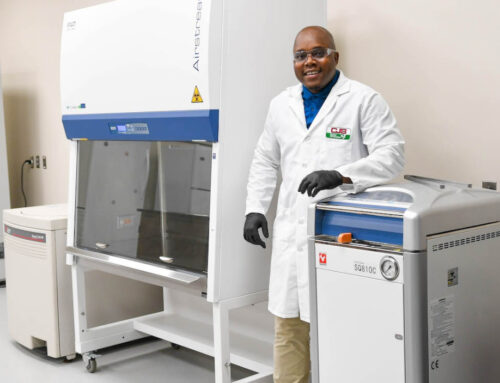You have a great idea for a product, but now you need to know where to start the process of getting it developed and produced.
You may not have the time or money to start up your own laboratory, pilot plant, and manufacturing facility to see the project through until the end, or you may have one of the best formulation staffs in your industry. Either way, you may need a way to increase resources to get a product formulated, scaled up, and hitting revenue targets timely and efficiently. If so, it is time to consider a contract development and manufacturing organization (CDMO).
Before there can be a product, there has to be a formula. A CDMO can help you fine-tune your existing recipe or even help you create one. Here are six simple steps to help you and your CDMO to get started in the formulation development process.
DISCUSS YOUR IDEA
You need to have an initial conversation with the CDMO so they can gain a basic understanding of the product concept to make sure they are the best fit for your project.
The CDMO needs to determine that your product is a match with their expertise and equipment so they can carry your idea through development, formulation, testing, scale-up, and packaging. If not, the CDMO should help point you in another direction. Determining CDMO fit is critical to development success.

DEVELOP AN NDA
Before discussing the sensitive details openly with the CDMO, you may want to take steps to get formal protection of your ideas and intellectual property.
The CDMO should work with you to develop a non-disclosure agreement (NDA) in order to respect your rights and to protect your intellectual property. This is usually done with a mutual NDA. That is an agreement that protects all parties involved in the product and project discussions.
The NDA can also help establish what happens after the formula is created. You should understand which part of the intellectual property belongs to you or the CDMO. Most customers of CDMOs prefer to own the formulation outright rather than paying ongoing royalties. The CDMO will want to protect their formulation know-how without placing limits on how you use the formulation. A well-written NDA leaves nothing to the imagination.
GET DOWN TO DETAILS
Next, you should work with the CDMO to build a deep understanding of the specifics of the project and any special requirements you have.
The CDMO will be able to understand the custom formulation needed. They should offer flexibility and expertise to help determine the best avenues for development and final production.
Especially for pesticide formulations, the CDMO must provide timely options and stick to timelines so you do not miss your target regulatory path or growing season.
QUOTE THE PRICE IN PHASES
You need to know what you are signing up for before any work is done. Estimating a project in phases gives you the flexibility to alter the plan based on milestones and results.
The CDMO should be able to explain how their cost reflects their value. In other words, how their expertise, labor, and materials figure into the price. They should strive to save you money where they can, but not at the expense of the safety, quality, or performance level required by your application.
The CDMO will set up milestones for the development plan. Every project is different, but here are some typical milestones you may need:
- IP search to determine the freedom to operate
- Test batches to determine the fitness and top formulation candidate(s)
- Product stability testing
- Pilot-scale production
Furthermore, the more work you have completed before the start of the project, the quicker and less expensive your project should be. Your experiences are key to optimizing the plan.
One thing to keep in mind: You are buying a formulation for a product that you will make and sell for years to come. Therefore, it is important to get this upfront effort right.
AGREE ON A TIMELINE
Many formulation development projects can be completed within a 90-day timeframe. Some smaller (or repeat) projects can be done even more quickly. More ambitious projects can take as long as a year or two.
Depending on your requirements, a Master Agreement (MA) and/or Scope of Work (SOW) may be put together to specify deliverables.
The goal of a CDMO is to get your idea to market as fast as is practical. It is imperative to make sure everyone’s timeline expectations are the same.
EXECUTE PRODUCT FORMULATION PROJECT
Now the fun part begins!
Up until this point, you have completed steps one through five. You have had an initial discussion about the project, developed and signed the NDA, agreed on the work to be performed, been quoted a reasonable price, and agreed on an efficient timeline.
Now it is time to get to work.
In a typical project, raw materials are gathered and work starts in the formulation laboratory. Based on years of experience, the development chemists will experiment with small batches in the lab to determine the right combination of ingredients that meets your product specifications, application, targeted materials, and production cost.
Also, See Why Independence & Confidentiality Matter in Contract Formulation Development?






